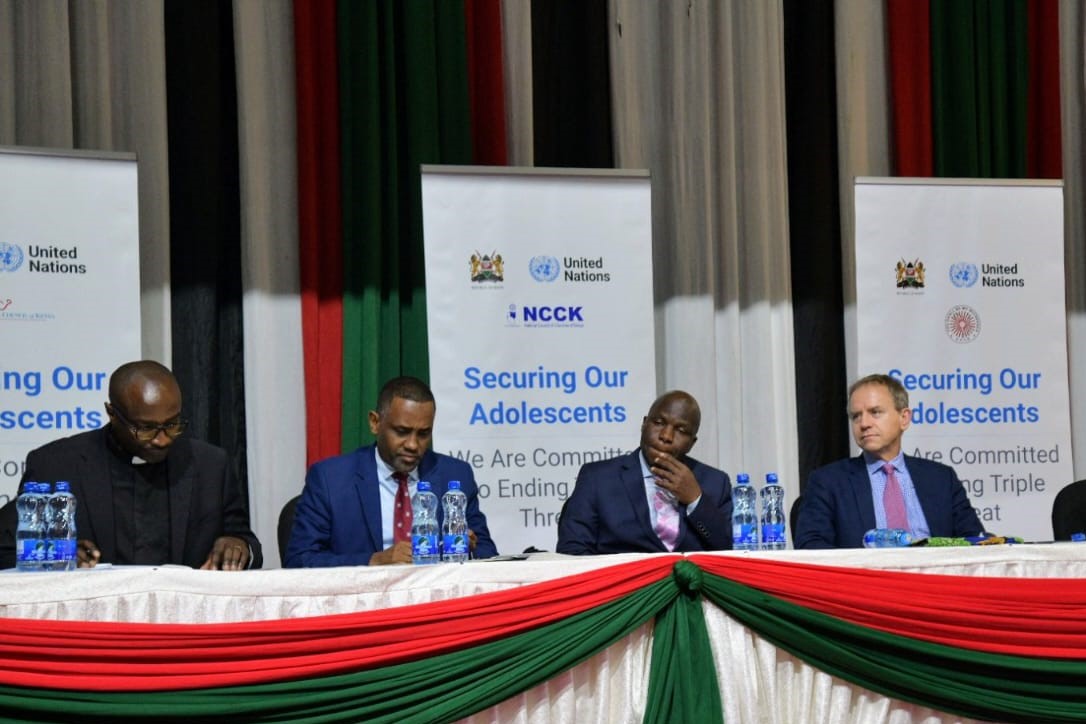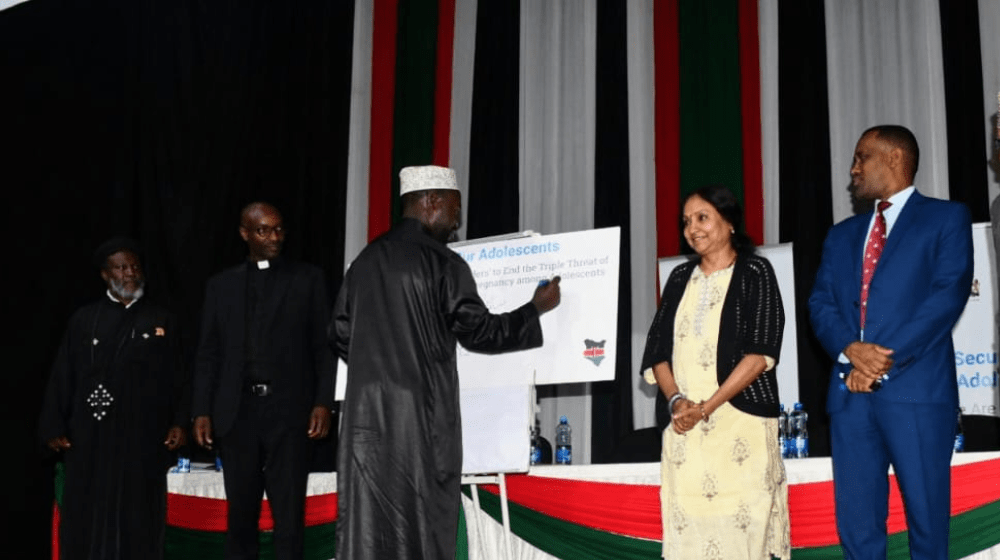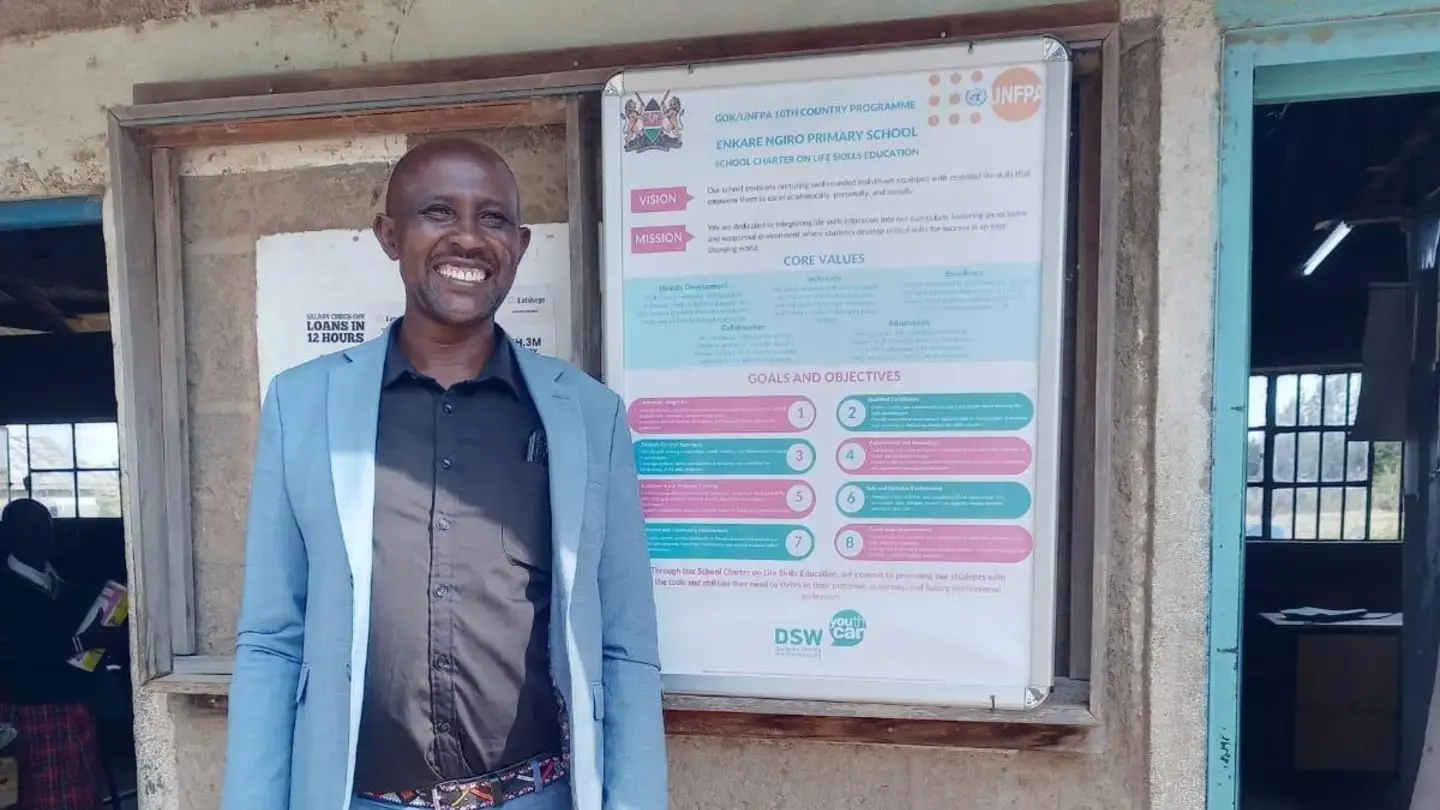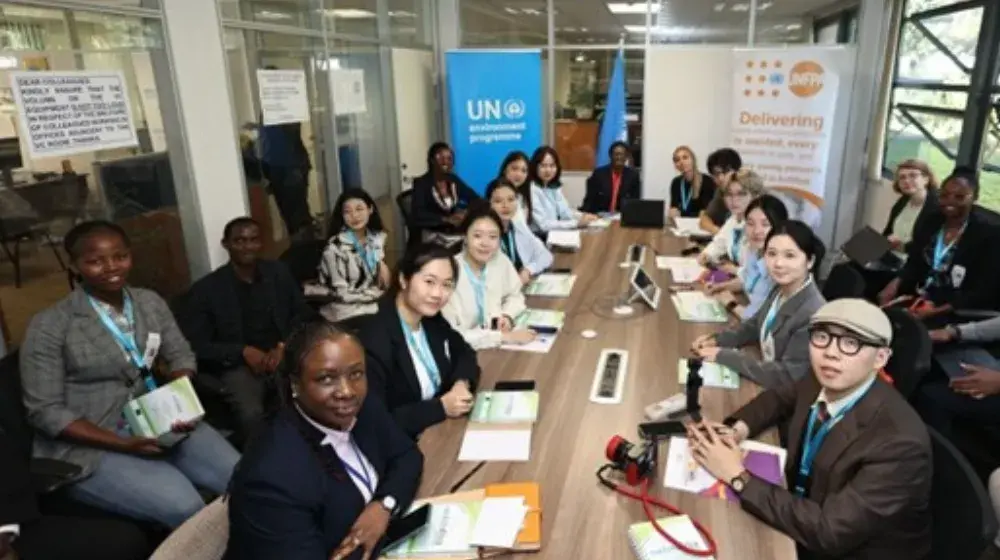Kenya’s efforts to improve adolescent health received a boost following the signing of a commitment by religious leaders drawn from different faiths, who pledged to support efforts to empower adolescents towards the elimination of new HIV infections, gender-based violence and teenage pregnancy.
At a religious conference held in Nairobi, the leaders committed to using their platforms to deliver messages and sermons that address the root causes of the triple threat. “We commit to develop the capacities of clergy, congregational leaders, chaplains, youth leaders and Sunday school and Madrassa teachers to deliver the messages and drive social attitude transformation,” said National Council of Churches of Kenya (NCCK) Secretary General Rev Chris Kinyanjui. The leaders also committed to the delivery of life skills, value-based education, and school reintegration for girl and boy survivors of triple threats, and to strengthen social support systems for adolescents and youth.
The National Syndemic Diseases Control Council in Kenya estimates that about one in five clients visiting an ante-natal clinic over the last seven years was an adolescent aged between 10-19 years. “More recently, between January and May 2023, more than 6,000 girls aged between 10-14 years accessed ante-natal services at clinics across the country,” says the council’s CEO Dr. Ruth Laibon.
In 2021, adolescents aged 10 – 17 years constituted 42.4% of reported cases of sexual and gender-based violence. Data from the same year shows that 5,294 new HIV infections were recorded among adolescents aged 10-19 years.
While addressing the religious leaders, the Principal Secretary in the State Department for Economic Planning Mr. James Muhati noted that Kenya has developed a training manual to equip national government and administration officers with the information and skills needed to respond to the triple threat.

Principal Secretary, State Department for Economic Planning Mr. James Muhati, and
UN Resident Coordinator Dr. Stephen Jackson at the Religious Leaders conference held in Nairobi.
“Religious leaders are a key stakeholder because of the important role they play in shaping the values of society,” said Mr. Muhati. “You hold influential platforms that can impact behavior change among adolescents, and we are happy to partner with you on this journey” he added.
As part of the ICPD25 national commitments, Kenya committed to improving the health of adolescents and youth to the highest possible standard by addressing the triple threat of new HIV infections, GBV, and pregnancy in adolescents. The religious leaders conference was convened by the Government of Kenya and the United Nations in Kenya, led by UN Resident Coordinator Dr. Stephen Jackson.
“Ending the triple threat calls for a whole-of-society approach,” said Dr. Jackson. “ I am pleased to see that despite the diversity of our backgrounds, beliefs, and approaches, we are united as different actors to eliminate these threats that hold back the potential of our young people and the achievement of the Sustainable Development Goals.”
Participants at the religious conference included representatives from the Kenya Conference of Catholic Bishops, the National Council of Churches of Kenya, the Evangelical Alliance of Kenya, the Organization of African Institute Churches of Kenya, the National Muslim Leaders Forum, the Supreme Council of Kenya Muslims, the Seventh Day Adventist Church, the Hindu Council of Kenya, SAAJ and the Inter-Religious Council of Kenya.





